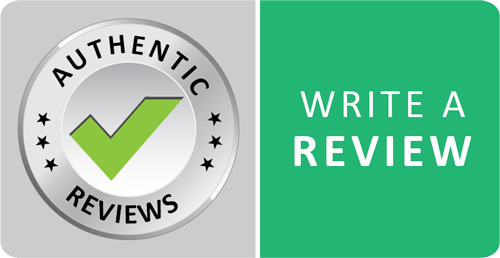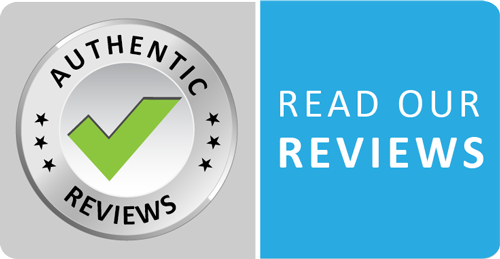Software Patent Attorney - Protect Your Intellectual Property
Have you developed innovative software? An expert patent attorney can help you protect your software invention.
Do You Need a Software Patent Attorney to File Software Patents?
Software developers spend a lot of time, energy, and cumulative knowledge to write the code, test, debug, and, ultimately, develop new software applications. These efforts should not go unnoticed, unrewarded – or, worse, stolen. Software patents protect the intellectual property of software developers when they create an innovative new applications.
New software may be proprietary to a specific field or relevant to mainstream consumers. In either case, you can protect your computer software with a software patent.
You should rely on a professional intellectual property (IP) attorney like Prof. John Rizvi, Esq., who attended law school for patent law and went on to lead the law firm, The Patent Professor®. With expertise in utility patents, patent protection, and the patent application process, our law firm can help you protect your technological innovations with the appropriate software patent.
What Is a Software Patent?
A software patent is a highly specialized type of non-provisional utility patent. Non-provisional utility patents demonstrate that your software or other intellectual property cannot be copied, used, or sold by other businesses or individuals. When you receive a non-provisional patent, it means you’ve gone through the entire patent application process, including a patentability search and review of prior art.
The United States Patent and Trademark Office has thoroughly investigated your patent claims and granted you the exclusive rights to manufacture, market, and sell the patented device, item of manufacture, process, or even computer software.
A provisional patent application, on the other hand, only gives your invention “patent pending” status. It means you submitted most of the paperwork required for a patent. Receiving the non-provisional patent depends upon:
- the results of the patentability search
- submission of your non-provisional patent application within one year of your initial provisional patent application filing date
- approval of your non-provisional patent application by the USPTO
What Types of Technology Does a Software Patent Cover?
A software patent can cover:
- Computer software for Mac-, Windows, or Linux-based platforms
- Applications for mobile devices on Windows, iOS, or Android platforms
- Applications for wearables on a variety of platforms
- Software and applications for platforms not yet conceived
Understand the Difference Between Software Patents and Other Utility Patents
A software invention differs significantly from other items, inventions, and processes that may be eligible for utility patents. Utility patents, including software patents, last for 20 years, with renewals required at specific intervals.
Utility patents can cover:
- Medical devices
- Sporting equipment
- Business processes
- Items of manufacture
- Machines and electronics
- Biotechnological advances
- Software and apps
Most utility patents begin with a patentability search to determine if the invention or process is patent eligible. A device won’t be brought to market until a patentability search has been completed to determine that the invention is unique, and that no prior art exists that is too similar to the new invention.
If the patentability search turns up similar prior art, the inventor can re-write the patent claims to emphasize the unique and innovative aspects of the invention or abandon the development entirely.
In nearly all cases, inventors seek a patent before investing substantial time and money into product research and development.
But software innovation and software invention move so rapidly, many software developers move forward with software development before applying for a patent or even conducting a patentability search.
A patent law firm like The Patent Professor®, with expertise in utility patents, can provide legal advice to help you decide if you should conduct a patentability search prior to investing the time and money into software development.
Steps to Take Before Filing a Computer Software Patent
1. Ensure the subject matter is patent eligible.
Abstract ideas are not patent eligible. However, if you can document the problem your computer software solves and how it solves that problem, your software concept may be patent eligible. A knowledgeable patent attorney can help you decide if it’s worth pursuing a software patent.
2. Conduct a patent search.
You’ll have to decide, with your IP attorney, if you should bother with a patent search. It may or may not be as useful for a computer software patent as for other utility patents. Computer software innovation moves at a rapid pace. Patent applications remain confidential for 18 months after filing. So the likelihood of turning up prior art similar to your computer software diminishes if your idea is cutting-edge and relevant to today’s computing challenges and hardware capabilities.
Should You Patent Your Software?
With the rapid speed of software development, you may wonder if it pays to patent your software at all. Patenting your software carries several benefits:
- Protect your intellectual property
- Increase profitability of your software
- Protect your product's reputation
On the other hand, it might not pay to patent your software if:
- You don't feel as if your software development will make much money
- You don't have the money to complete the extensive patent application process
- You don't have the money and time to pursue patent litigation if someone were to infringe on your software patent.
Some developers make the conscious decision to leave their software unpatented.
What Is Open-Source Software?
When software developers leave the software code open for other programmers to study, modify, develop, and distribute, it's called "open-source software."
You wouldn't protect open-source software with a patent, because you release the code with the goal of other people improving upon your innovations.
Open-source software can lead to tremendous advances in computer science. Developers who decide to release open-source code often have specific reasons for doing so.
But if you seek to profit from your computer software, it's best not to release your source code and, instead, protect it with a patent or through other forms of intellectual property protection.
What Other Types of Intellectual Property Protection Can Protect Your Software Developments?
Since patent protection for software may be difficult to secure, some developers find it more cost-effective and efficient to secure their intellectual property in other ways.
For instance, you can protect computer software code with:
- Trade secret protection
- Copyrights
- Trademarks
Let’s explore how each of these techniques can help protect your software invention.
Trade Secrets
Primarily used to protect proprietary software used only within your organization, trade secrets need no official application process or registration to remain security. The onus is on the company and software users to maintain confidentiality of the:
- source code
- software's design and functionality
- software's existence
You can protect trade secrets related to software programming through:
- enhanced cybersecurity practices
- non-disclosure agreements
- secrecy within your organization
Copyrights
A software patent protects the subject matter and functionality of your software, prohibiting other developers from creating software code that accomplishes the same objectives in the same exact way.
However, a copyright protects the actual source code as original written material. Copyrights prohibit anyone from copying and distributing your software, but they can’t prevent someone from developing similar software using different source code.
An IP attorney can help you file for copyrights for your source code, either separately or in conjunction with filing for a patent for the software and its interface.
Trademarks
Filing for a trademark is often less costly, less time-consuming, and simpler than filing for a patent. You can trademark the name, logo, and unique slogan or tagline for your computer software without protecting the actual software functionality.
If someone tries to copy your software, they could be charged with trademark infringement if they try to use your name or something similar.
Do You Need a Software Patent Attorney?
A software patent attorney can help you explore your options to protect your intellectual property, providing the legal advice you need to file for the right IP protection.
If you decide to apply for a computer software patent, The Patent Professor® will take you through every phase of the complicated patent application process for utility patents.
Software patent applications may be filed with the Supreme Court or with District Courts that serve the United States Patent and Trademark Office. Your IP attorney will know the best place to file, where you can defend your patent, and what other steps you may want to take to protect your software innovations.
The Patent Professor® Can Help You Patent Your Innovative Software
Do you need legal advice regarding your latest software developments? Act now before another developer jumps ahead of you to replicate your software idea. You can trust The Patent Professor®, Prof. John Rizvi, Esq. to help you secure your software patent.
Do you need legal advice regarding your latest software developments?
Call (877) 318-2152 today for expert legal advice from a top software patent attorney.


